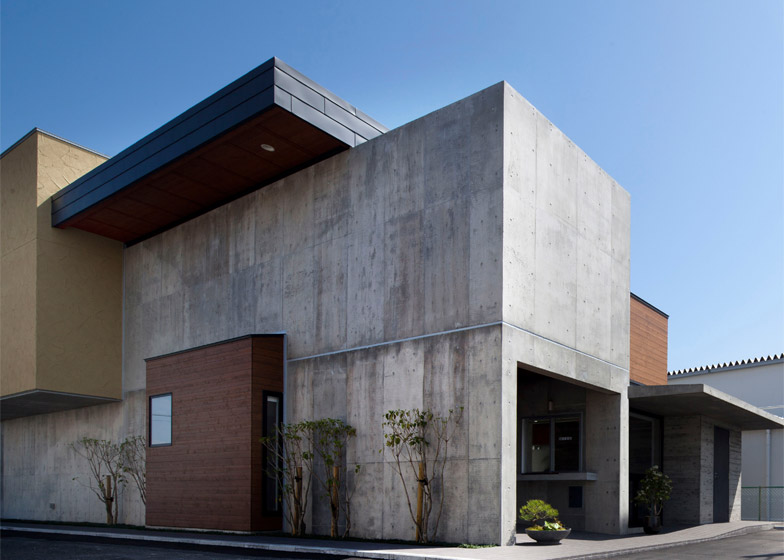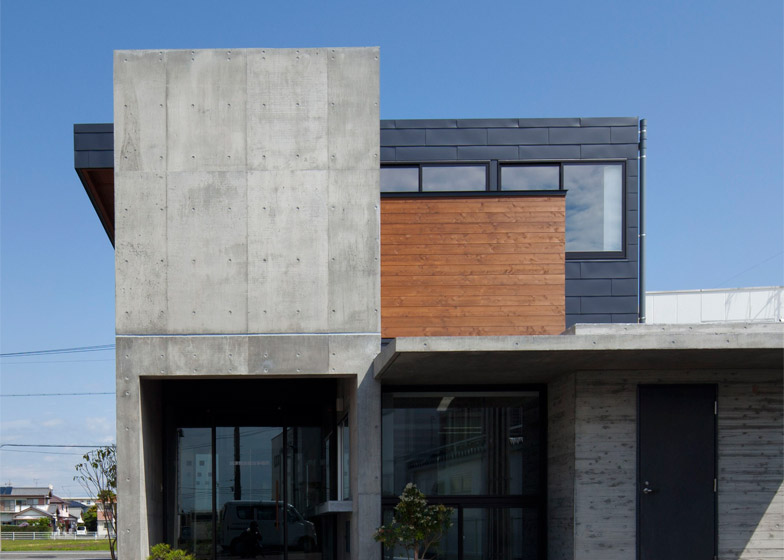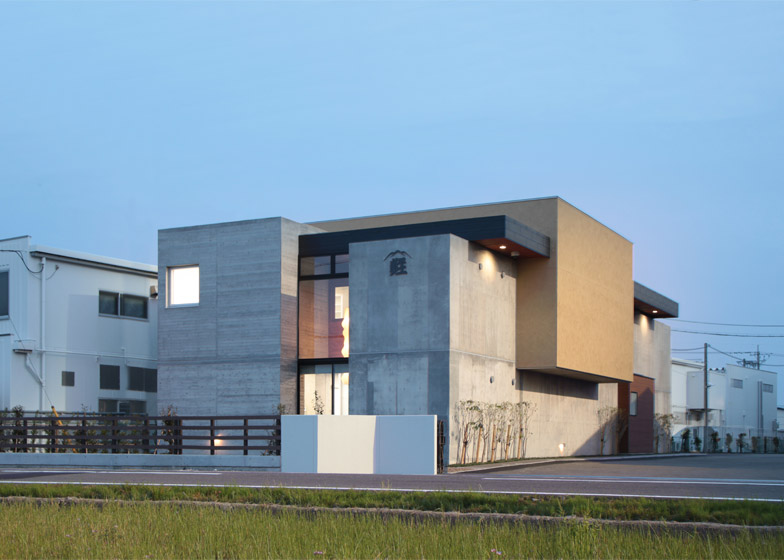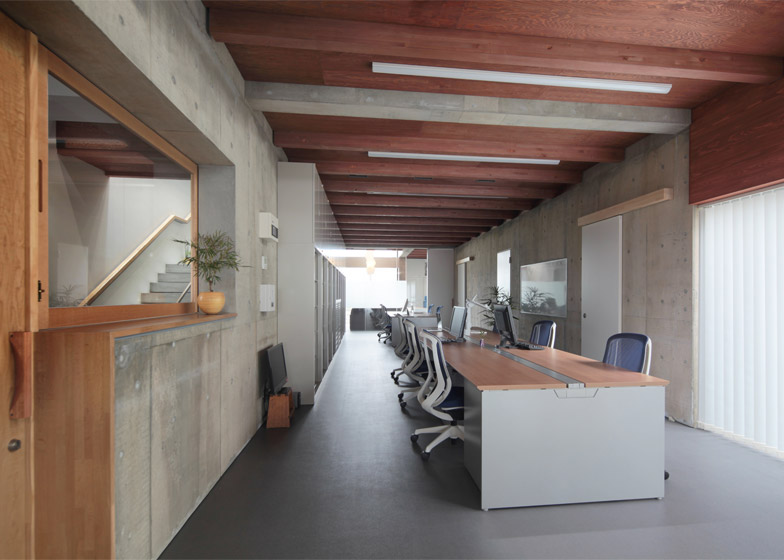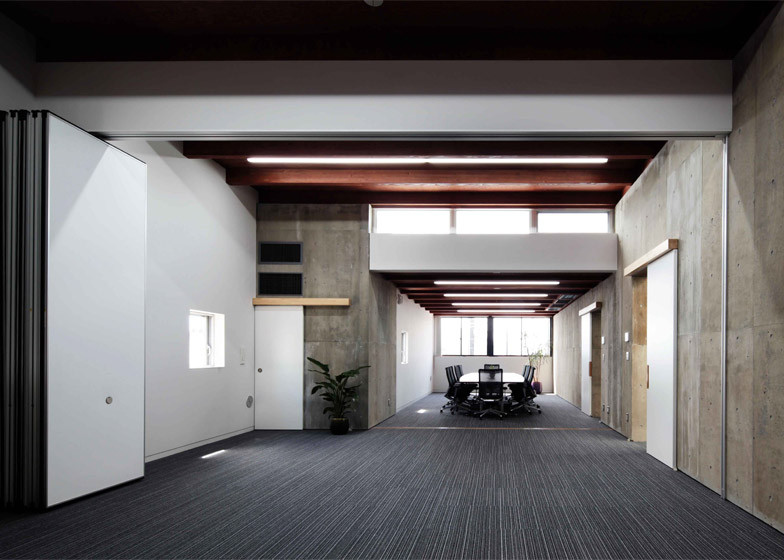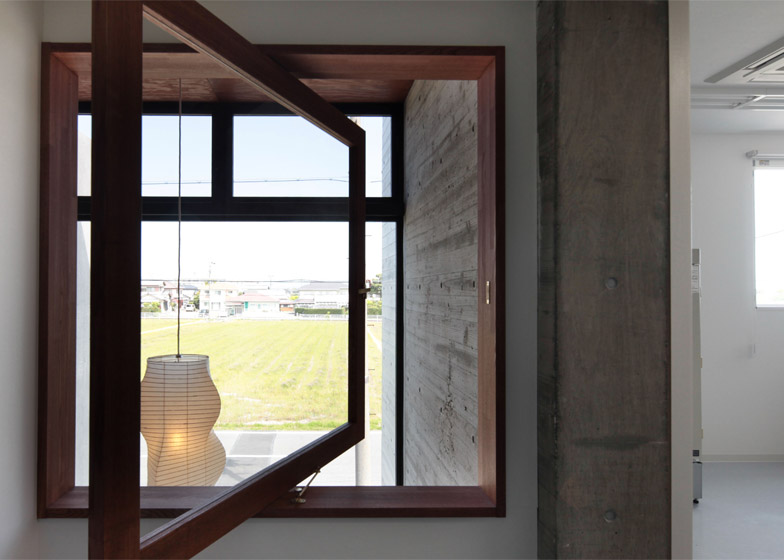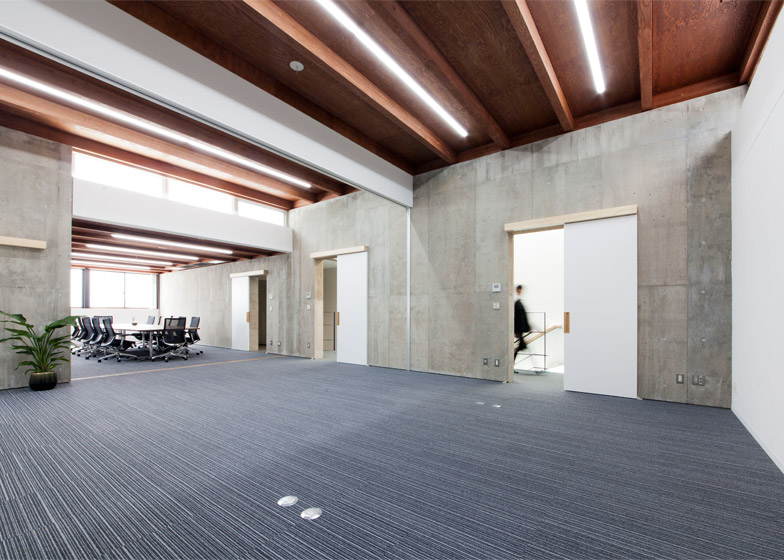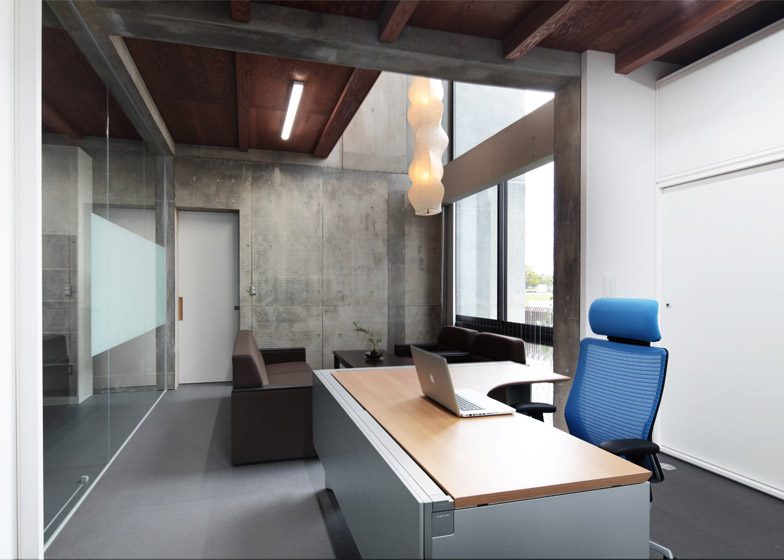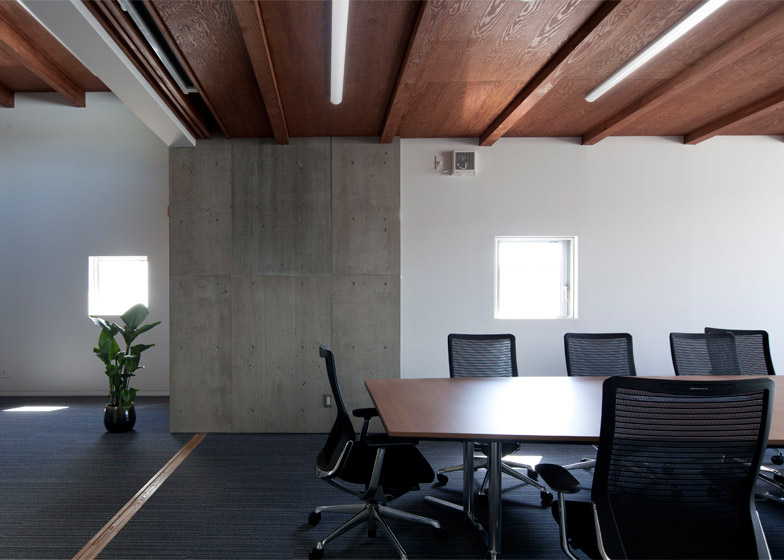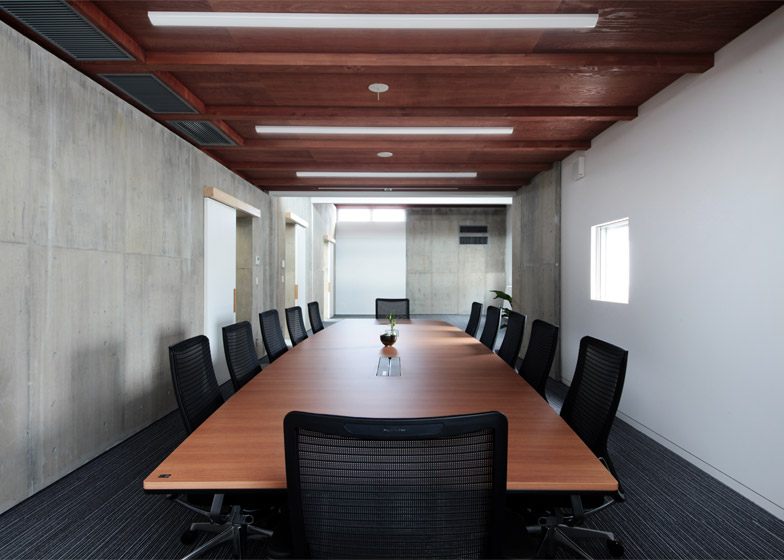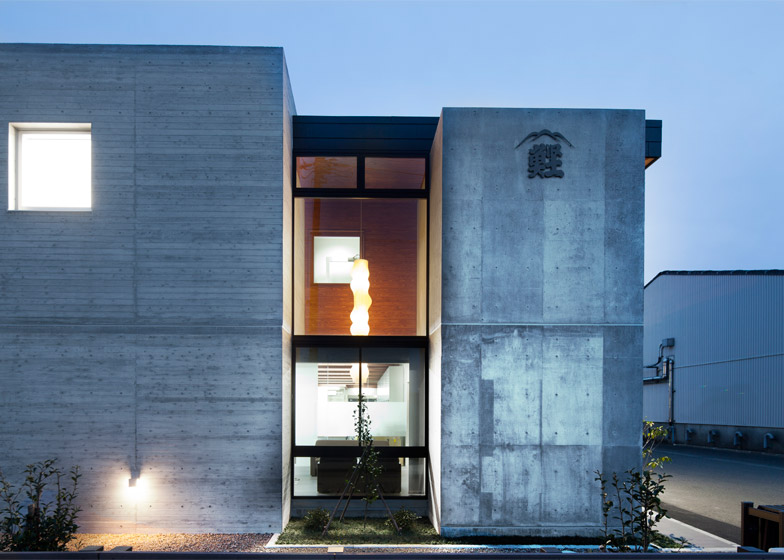Mizuno Architecture Design has created a concrete office and conference facility for the employees of a tuna processing factory in the Japanese seaside town of Yaizu (+ slideshow).
The Katsuobushi Kumiai Office creates a new home for the Yaizu Katsuobushi Industry Cooperative Association – an organisation that supports the town's thriving Katsuobushi industry, which involves the drying and fermenting of smoked skipjack tuna.
The site is located at the centre of an industrial estate surrounded by noisy refrigeration units, so the Japanese studio's founder Yoshiyasu Mizuno created a bulky concrete structure that would offer acoustic separation from its neighbours.
"The highest priority was given to creating a tranquil business space, protected from the noise generated by the incoming and outgoing of large vehicles and the unloading of freight," explained the architect, whose past projects include a triangular house with a sheltered outdoor cooking area.
The building comprises a series of concrete blocks, connected by a central glazed space. The concrete is left exposed on three of the volumes, while others have surfaces clad in timber, coated in metal panels or rendered gold.
"Boxes are made of reinforced concrete to create a buffer zone from the outside environment," Mizuno explained. "The reinforced concrete boxes as structural units carry the horizontal forces, while floors and ceilings are composed of wooden slabs."
"Our design process employed is to distribute features in their required locations in a straight-forward way, resulting in having ragged volumes applied with a variety of materials."
The building contains two storeys. The lower level accommodates a long narrow office, with areas that can be subdivided if necessary, while the upper level contains a large conference room.
Concrete surfaces are also left exposed inside the building, but are combined with timber details and ceilings to create some warmth in the space.
"Our interpretation of the client's request is to make these business spaces a pleasant environment by applying appropriate materials to the horizontal and vertical floors and walls to create a safe and comforting ambience," added Mizuno.
Photography is by Harunori Noda/Gankohsha.
Project credits:
Architectural design: Yoshiyasu Mizuno/Mizuno architecture design association
Constructional design: Masayuki Takada/RGB structure
Construction management: Kinoshita Kensetsu Kogo

